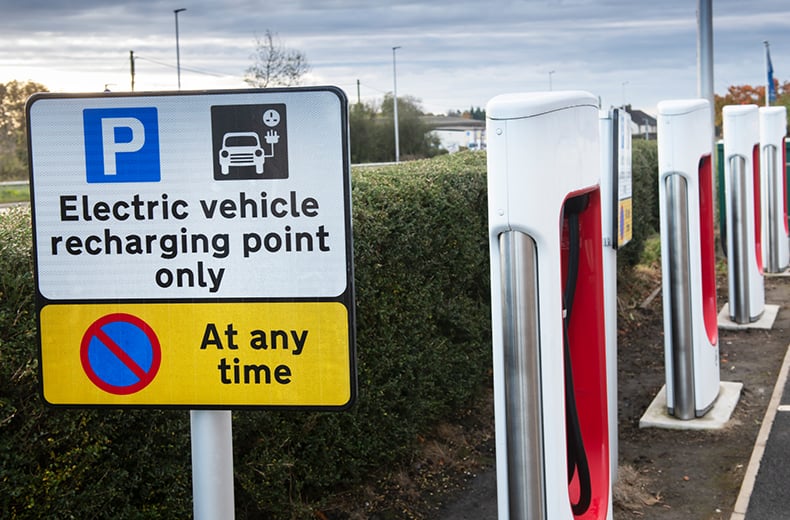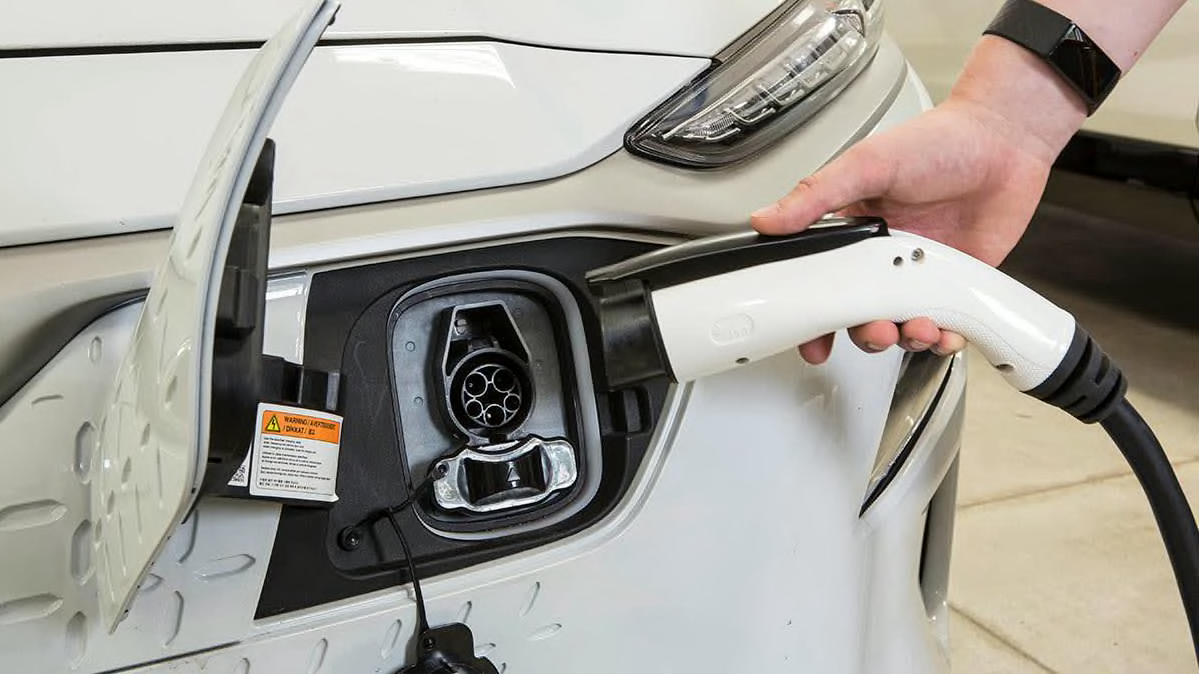How to charge your electric car ?
Want to start each day with a ‘full tank’? Charging each night at home will provide all the daily driving range the average driver will need.
You can charge using a regular domestic 3 pin socket, but a dedicated home EV charger is the better option by far.
Dedicated EV home chargers typically deliver around 7kW of power. In contract, most vehicle manufacturers limit the current drawn from a standard domestic 3 pin socket to 10A or less, which equates to a maximum of 2.3kW.
A 7kW home charger therefore delivers approximately three times as much power and is approximately three times as fast as using a domestic socket.
Home chargers are also much safer as they are designed to deliver that level of power over long periods.
The installation engineer will have checked that your property’s wiring and consumer unit are up to the required standard; a home charger also uses dedicated electric vehicle sockets that are more robust and weather proof than domestic 3 pin sockets.
How much does it cost to install an electric car charger at home?
The typical cost of a home charge point is around £800.
Under its Electric Vehicle Homecharge Scheme, OLEV currently offers a grant of up to 75% of this cost, capped at a maximum grant of £350.
If you own or have primary access to an EV and off-street parking you may be eligible for an OLEV funded grant towards the cost of a home charge point.
Can I still charge my electric car from an ordinary 3 pin socket?
Yes, if you have the right lead to do so. However, it is better to use this option as a back-up rather than as a regular charging method.
This is because it usually involves running a 3-pin socket at 2.3kW, which is close to its maximum 3kW power rating, for hours at a time, which puts a lot of strain on a circuit.
It’ll be slow as well. For example, charging a fairly typical 40kWh EV battery from zero to 100% would take more than 17 hours.
Most EV owners therefore install a dedicated EV home charger which will typically deliver between 3.7 and 7kW of power, reducing charging times significantly compared to a 3 pin socket.
If you ever use an extension lead to charge an EV you must ensure it is rated at 13amps and fully unwound to prevent overheating.
Should I change my energy tariff at home if I get an EV?
Many electricity suppliers offer domestic tariffs designed for EV owners, which generally have cheaper night time rates which benefit overnight charging.
Workplace charging
Charging points at work help make electric cars viable for commuters who live further away from their homes.
If your work doesn’t have an electric vehicle charge point installed, it could take advantage of the Government’s Workplace Charging Scheme (WGS).
The WGS is a voucher-based scheme that provides a contribution towards the up-front costs of the purchase and installation of electric vehicle to the value of £300 per socket – up to a maximum of 20 sockets.
Employers can apply for vouchers using the Workplace Charging Scheme application.
Public EV chargers can be found at service stations, car parks, supermarkets, cinemas, even just at the side of the road.
Public chargers at service stations fulfil the role of our current forecourts and are best suited for longer journeys, with a rapid charging unit providing up to 80% of charge in as little as 20-30 minutes.
The network of public chargers continues to grow at an incredible rate. Zap-Map reports a total of 31,737 charging points at 11,377 different locations nationwide at the time of writing (May 2020).

